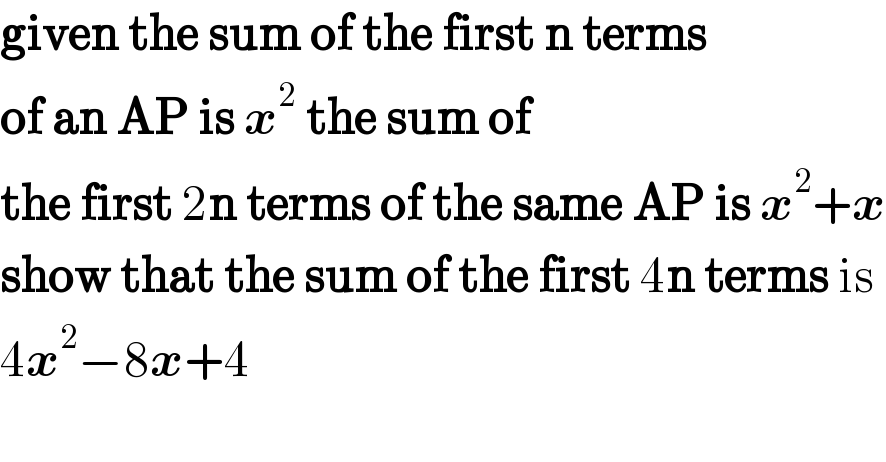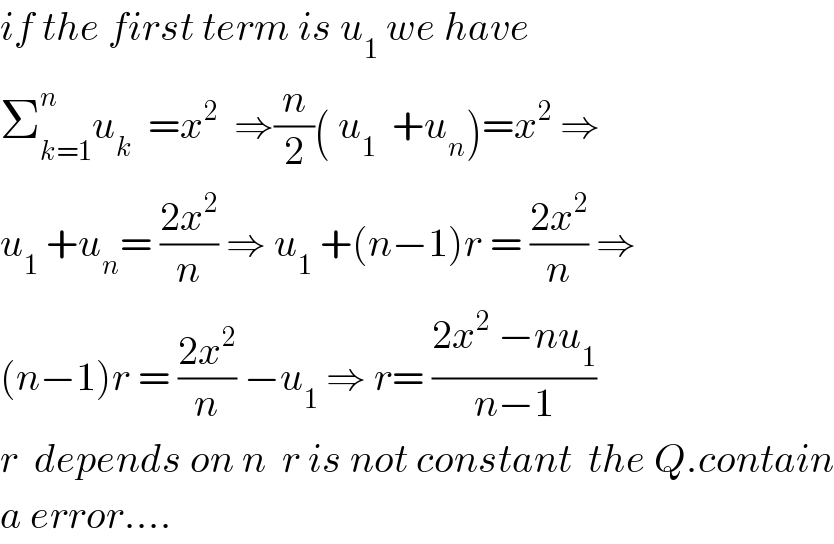
Question and Answers Forum
Question Number 34734 by mondodotto@gmail.com last updated on 10/May/18

Commented by abdo mathsup 649 cc last updated on 11/May/18

Answered by Rasheed.Sindhi last updated on 10/May/18
![a: first term, d:common difference Sum of n terms: (n/2)[2a+ n−1 ^(−) d]=x^2 2an+ n(n−1)d=2x^2 ....I Sum of 2n terms: ((2n)/2)[2a+ 2n−1 ^(−) d]=x^2 +x 2an+ n(2n−1) d]=x^2 +x...II I−II: [n(n−1)−n(2n−1)]d=x^2 −x n(n−1−2n+1)d=x^2 −x n(−n)d=x^2 −x −n^2 d=x^2 −x d=((x−x^2 )/n^2 ) (n/2)[2a+ n−1 ^(−) d]=x^2 ⇒n[2a+ (n−1)(((x−x^2 )/n^2 ))]=2x^2 2an=2x^2 −((n−1)/n^2 )(x−x^2 ) a=(x^2 /n)−((n−1)/(2n^3 ))(x−x^2 ) a=((2n^2 x^2 −(n−1)(x−x^2 ))/(2n^3 )) Sum of 4n terms: ((4n)/2)[2a+(4n−1)d] = 2n[2(((2n^2 x^2 −(n−1)(x−x^2 ))/(2n^3 )))+(4n−1)(((x−x^2 )/n^2 ))] = 2(((2n^2 x^2 −(n−1)(x−x^2 ))/n^2 ))+2n(4n−1)(((x−x^2 )/n^2 )) = 2(((2n^2 x^2 −(n−1)(x−x^2 )+2n(4n−1)(x−x^2 ))/n^2 )) = ((4n^2 x^2 −2(n−1)(x−x^2 )+4n(4n−1)(x−x^2 ))/n^2 ) = ((4n^2 x^2 −2nx+2nx^2 +2x−2x^2 +16n^2 x−16n^2 x^2 −4nx+4nx^2 )/n^2 ) The answer is not free of n Perhsps there′s an error... Can you check my solution. Continue](Q34740.png)
Commented by mondodotto@gmail.com last updated on 10/May/18

